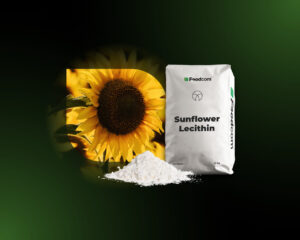Lesen Sie ausgewählte Geschichten aus dem globalen Markt für pflanzliche Produkte! Werfen Sie einen Blick auf den neuen Vertrag von Beyond Meat mit McDonald’s, um McDonald’s mit pflanzlichen Burgern zu versorgen, eine neue Anlage für Cricket-Protein in Kanada, die von der Aspire Food Group geplant ist, Bemühungen, Hanf in die Tierfutterproduktion in den USA einzubeziehen, das Debüt des pflanzlichen Angebots von Hochland und die stark steigende Nachfrage nach Vitamin C.
Neuer Vertrag von Beyond Meat mit McDonald’s
Beyond Meat sichert sich einen 3-Jahres-Vertrag mit McDonald’s als Hauptlieferant von Patty für den pflanzlichen Burger namens McPlant, der bereits an bestimmten Standorten weltweit eingeführt wurde. Beyond Meat wird auch an der Erforschung pflanzlicher Alternativen zu anderen McDonald’s-Produkten mit Hühnchen, Schweinefleisch und Eiern beteiligt sein. Das Unternehmen hat auch einen Vertrag mit Yum! Brands abgeschlossen, um bei der Entwicklung von tierfreien Alternativen für Speisen anderer Fast-Food-Giganten wie KFC, Pizza Hut und Taco Bell zusammenzuarbeiten.
Neue Anlage für Cricket-Protein in Kanada
Die Aspire Food Group kündigt Pläne zum Bau einer neuen Anlage in Kanada an, die ausschließlich der Produktion von Cricket-Protein im Rahmen eines Programms zur Förderung des Verzehrs von essbaren Insekten gewidmet ist. Der Bau der Fabrik wird 13,2 Millionen US-Dollar kosten und voraussichtlich fast 20.000 metrische Tonnen Produkte pro Jahr herstellen. Die Anlage soll im ersten Quartal 2022 voll einsatzbereit sein und etwa 60 Mitarbeiter einstellen.
Erste Anwendung von Hanf in der US-Futtermittelindustrie
Die erste Einreichung für die Verwendung von Hanf in der Tierfutterindustrie in den USA wurde den Kontrollbehörden der Branche vorgestellt. Nach Ansicht von Experten können die Nebenprodukte der Hanfherstellung als hochwertige, nährstoffreiche Zutat in Tierfutter verwendet werden, da sie etwa 30% Protein, 10% Fett und eine Reihe von Kohlenhydraten enthalten. Wenn die Anwendung genehmigt wird, könnten Hanfsamenmehl und -kuchen kommerziell als Futtermittel für Hühner verwendet werden.
Hochland Polska führt neue pflanzliche Produktlinie ein
Der polnische Marktführer in der Käseproduktion, Hochland Polska, gibt sein Debüt mit einem neuen pflanzlichen Angebot. Die Marke SimplyV repräsentiert die wachsende Nachfrage nach tierfreien Produkten und bietet den Verbrauchern eine Auswahl an Aufstrichen und Scheiben, die aus hochwertigen, vollständig veganen Zutaten hergestellt sind. Die Produkte von SimplyV sind frei von Laktose, Gluten, Milch, Soja und Palmöl. Das Angebot ist bereits in Einzelhandelsgeschäften erhältlich.
Drastischer Anstieg von Vitamin C
Die durch die Pandemie verursachten Bedenken hinsichtlich Gesundheit und Immunität haben im letzten Jahr zu einem drastischen Anstieg der Vitamin-C-Verkäufe geführt.
Mit dem Rückgang der globalen Vitamin-C-Vorräte steigt der Preis für das Produkt. Im November 2020 stiegen die Preise innerhalb eines Monats um bis zu 200%. In den USA stiegen die Verkäufe des Produkts von November 2019 bis 2020 um 61,8% und beliefen sich auf insgesamt 576 Millionen US-Dollar. Dennoch sagen Experten voraus, dass sich das Angebot bald stabilisieren wird.







